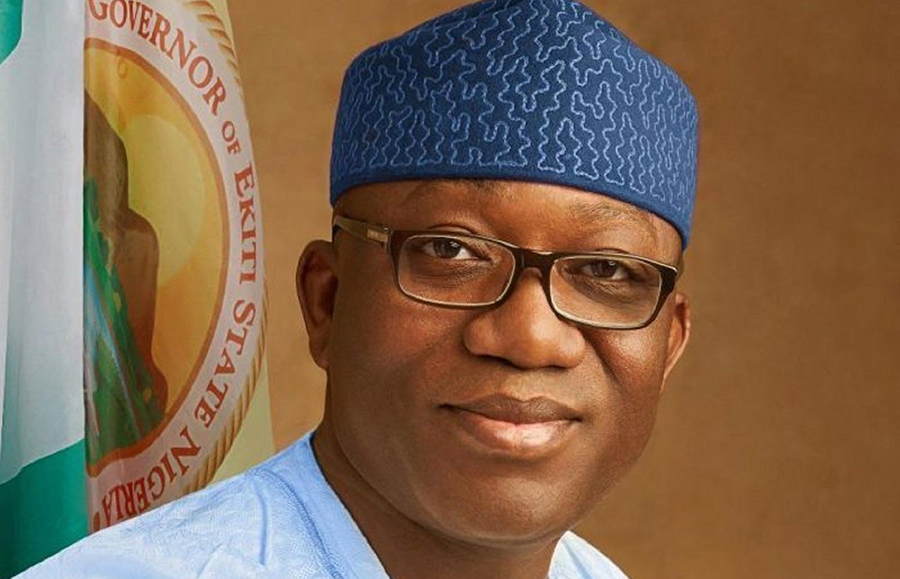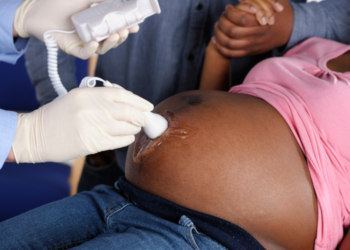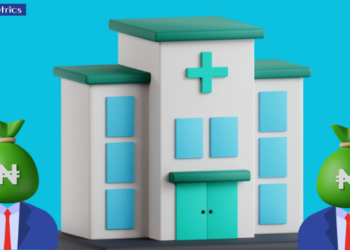Dr. Kayode Fayemi, Governor of Ekiti State and Chairman of the Nigerian Governors Forum has disclosed that for Nigeria to rebuild post-Covid, the country must move to a more impactful sustainable health care plan.
The Governor disclosed this on Tuesday after his lecture titled, “The role of Nigeria’s state governments in recovery: responses to COVID-19 linked challenges’’ at the Chatham House Event, London, United Kingdom. He added that the NGF is working with the FG to ensure Nigerians have access to the vaccines.
Fayemi stated that the FG must focus on healthcare to ensure a better economic rebuild.
“We must ask ourselves and rethink on existing assumptions and facts around financing and delivery of health care in a manner that guarantees we build back better.
“This requires adequate funding of the health sector. We have begun to advocate for increased investment in health security and public health emergencies by State Governments,” he said.
He disclosed that his Ekiti State increased the capital budget for health by 250% due to the pandemic, and proposed that states establish their own Centres for Disease Control.
“In Ekiti State, for example, our capital budget for health in 2021 increased by 250% above 2020 figures.
“Our new four-year strategy for the health sector has public health security as a major priority.
“At the NGF, we are recommending that states begin to think about establishing their own Centres for Disease Control,” he said.
He also said that Nigeria now has a National Action Plan for Health Security (NAPHS) which includes a multi-sectorial approach to prepare for and respond to disease outbreaks.
The Governor revealed that Covid-19 is the biggest lesson for Nigeria as it affected every area of the economy, adding that all sectors have a duty to contribute to public health.
“The COVID-19 pandemic is perhaps our biggest lesson around this, as the pandemic has affected all spheres of the economy.
“Every sector must now contribute to ensuring health security and this is not limited to the provision of funds alone.
“Many of the determinants of health are outside the health sector, and so we must have multi-sectoral leadership and response to public health emergencies,” Fayemi said.
On the Central Bank
The Governor praised the Central Bank of Nigeria for its intervention policies to the states and for its role in ensuring states grow back to pre-pandemic levels.
“Intervention funds have been made available with interest rates below inflation, with the hope that we can stimulate the growth of small and medium scale businesses.
“Similarly, institutions such as the Bank of Industry and Bank of Agriculture have also given moratoriums on existing loans to ease the burden of payment,” he said.
What you should know
- Nairametrics reported this week that the Nigerian government expects about 41 million vaccines from the African Union before the end of April, as it also expects to source vaccines from India and Russia.
- This was disclosed by the head of the National Primary Health Care Development Agency (NPHCDA), Dr. Faisal Shuaib.
- President Muhammadu Buhari also signed the COVID-19 Health Protection Regulations 2021 policy, citing powers conferred to the Presidency, by Section 4 of the Quarantine Act, Cap. Q2 Laws of the Federation of Nigeria 2010.
- Six States, Lagos, FCT, Plateau, Kaduna, Oyo, and Rivers, have contributed 70% of confirmed cases, with Lagos, the commercial nerve of the country, contributing about 40% of the total burden. Data indicates that men appear to be disproportionately affected, accounting for 69% of the confirmed cases. Most cases occur in people aged 31-40 years.
- Fayemi also stated that Nigeria expects about 80 million doses of vaccines to be made available in 2021 to cover 40% of the population, while another 60 million doses are to be delivered ahead of 2022.






















